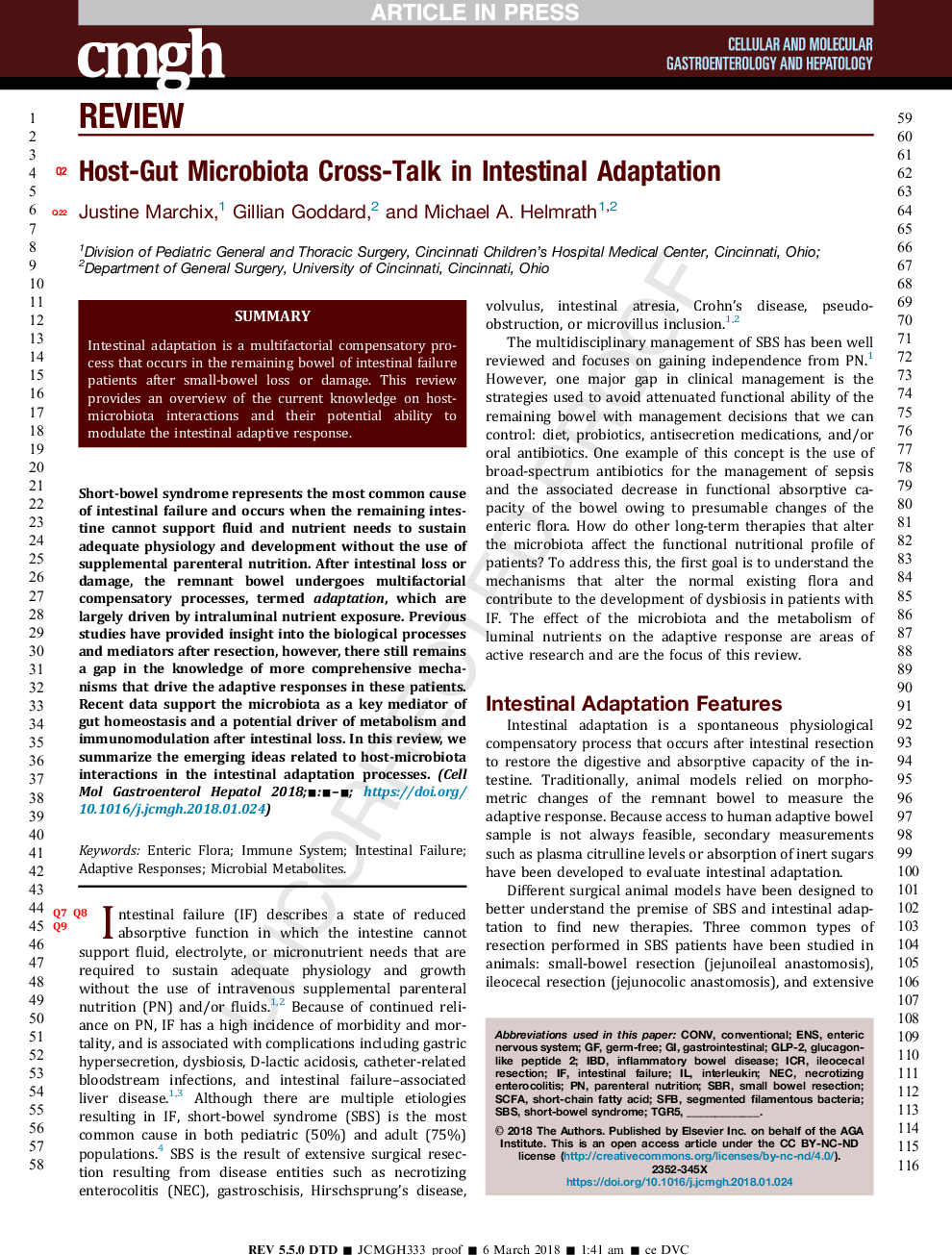| Article ID | Journal | Published Year | Pages | File Type |
|---|---|---|---|---|
| 8376057 | CMGH Cellular and Molecular Gastroenterology and Hepatology | 2018 | 13 Pages |
Abstract
Short-bowel syndrome represents the most common cause of intestinal failure and occurs when the remaining intestine cannot support fluid and nutrient needs to sustain adequate physiology and development without the use of supplemental parenteral nutrition. After intestinal loss or damage, the remnant bowel undergoes multifactorial compensatory processes, termed adaptation, which are largely driven by intraluminal nutrient exposure. Previous studies have provided insight into the biological processes and mediators after resection, however, there still remains a gap in the knowledge of more comprehensive mechanisms that drive the adaptive responses in these patients. Recent data support the microbiota as a key mediator of gut homeostasis and a potential driver of metabolism and immunomodulation after intestinal loss. In this review, we summarize the emerging ideas related to host-microbiota interactions in the intestinal adaptation processes.
Related Topics
Life Sciences
Biochemistry, Genetics and Molecular Biology
Biochemistry, Genetics and Molecular Biology (General)
Authors
Justine Marchix, Gillian Goddard, Michael A. Helmrath,
